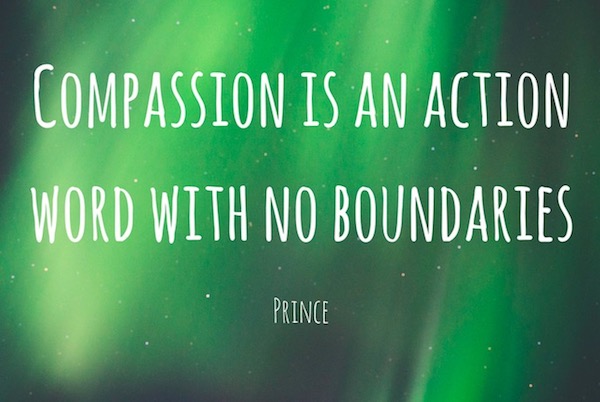
Recently, I spent a long weekend leading a women’s retreat in my hometown of Austin, Texas.
We “glamped” in tiny houses—eating picnic meals under the pergola, practicing yoga under the clouds, and hiking the trails that open up Hill Country’s magic.
But, after the momentum of planning and producing a retreat for 14 women, the commitment I made to put out a fresh newsletter every Tuesday seemed like a big stretch less than 24 hours after the dust had settled.
However, the promise I made to myself and my audience meant that even when I’m tired, busy, or on vacation, I needed to get this piece of work out of my brain and into the world.
There’s probably been a time when your goal—be it physical, mental, emotional, or financial—started out as bold, but then fizzled. One quick Google search and you can uncover an endless array of strategies that promise to offer a surefire way to chart a course for action. Yet, after all that help taking aim, we’re left struggling with the ability to stay the course.
So, before you reevaluate your plans or write off your ability to accomplish what you set out to do, consider that maybe now is not the time to question a goal, scrap a plan, or start over. Instead, it’s simply the time to do one thing: commit.
Try on these three compassionate steps to commit to any goal:
3. Count backward.
If you tell yourself that you want to do 25 reps of a bicep curl, or 30 minutes of a home yoga practice, move backward.
Instead of starting at rep one or minute one, start counting at 25 or set the timer at 30 minutes. Roll backward from there. I promise, a time will come in the middle of the work, no matter how you choose to count or track, when you will want to give up. If you are counting toward something, it’s easy to rationalize to yourself, “Well I got this far. It’s not all the way, but I can’t go farther.” But, if you count backward and know that you only have three more reps, three more phone calls, three more minutes to get to a goal, you will hunker down and get it done.
Even now, in writing this piece, I know I have two more points to offer. My heart is grateful for all of the work that has already been done, and my mind can embrace an attainable finish line.
2. Commit to “why,” not “how.”
When we make a goal, there is a reason why we want to complete it. For example, I committed to putting out a Tuesday email newsletter to connect with people I love every week. In my mind, this was originally intended to include a filmed yoga class that would be embedded in the email. If I had forced myself to allow for only 30-minute videos, I would have quit a long time ago. Creating video content for my newsletter is a way, but it is not the only way.
I’ve learned to relax with the details of how I get it done, and keep my mind focused on why I get it done.
Similarly, maybe you want to see a change on the scale, or you want to deepen your yoga practice. Stay open to a variety of ways to measure your commitment. Some days, perhaps your goal is served through a cycling class and other days, it is a walk with your dogs. Or, perhaps your practice is deepened through meditation for 10 minutes at your desk instead of a series of sun salutes on your mat.
The action plans we create exist to serve our intention. We do not set intention in service of our action plans.
1. Remember quitting is an option.
When I want to give up on a goal, I think of my husband, and I am filled with compassion for myself. I consider what he would offer me. Tim’s advice might be, “This doesn’t matter in the long run.” Or, he’d ask, “What really happens if you don’t get this done?”
These thoughts help me remember that my goals are not, in the grand scheme of things, the end-all-be-all of who I am or my success. On the surface, Tim’s advice seems counter-intuitive for goalkeeping—“If you give up, so what?”
But guess what? Tim’s right! Most likely, there will be another opportunity. Tuesday’s newsletter could come out on Wednesday. The world won’t end. We are okay, as is, right now. We are okay regardless of our goals. We do not need to be fixed. We are not failing.
Having compassion—even around the most mundane tasks—is essential for success.
Dropping a project or losing sight of a goal, no matter how small, can create a spiral of doubt. In my role as a trainer and coach, more often than not, I find that the things that pull us off course usually start small. It is not the big deadline we miss, but the daily habits we neglect that rack up.
The most damage after a small misstep comes from the messages we send ourselves after dropping the ball. Negative self-talk hurts far more and once we believe the hurtful things we tell ourselves, our willingness to try again shrinks. Goal-setting without compassion sends us out, defenseless, into the woods of sabotage, and prevents us from ever finding the path toward goalkeeping.
When you feel like giving up on project or a goal, remember you can make that choice, and this does not mean that you are giving up on yourself. It means you are offering yourself compassion for being human. When you quit on a goal, the world won’t end. The people who love you will still love you. And, there is always tomorrow. You can always start again.
Filling up with compassion for yourself and offering yourself an out provides a safe oasis. When you know that stopping for rest, letting go of a responsibility, or even playing hookie for a day is an option and not a failure, the mountain ahead may become nothing more than a small bump that you can roll over with ease.
~
Author: Julia Marie Lopez
Image: Author’s Own; Photo and Share CC/Flickr
Editor: Catherine Monkman


Read 0 comments and reply